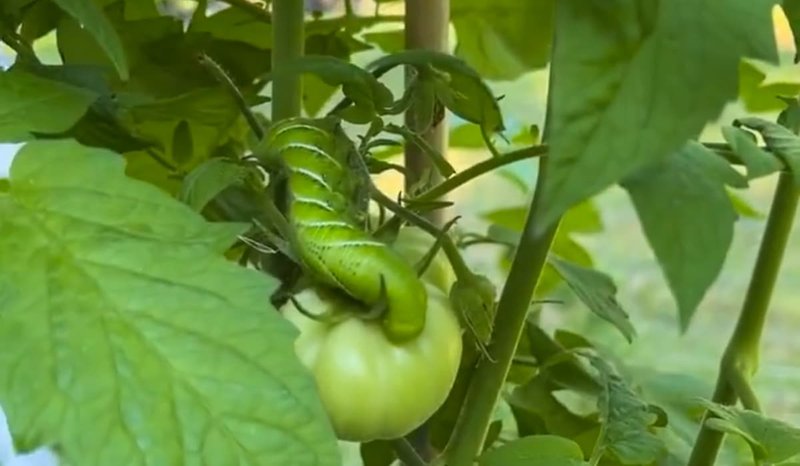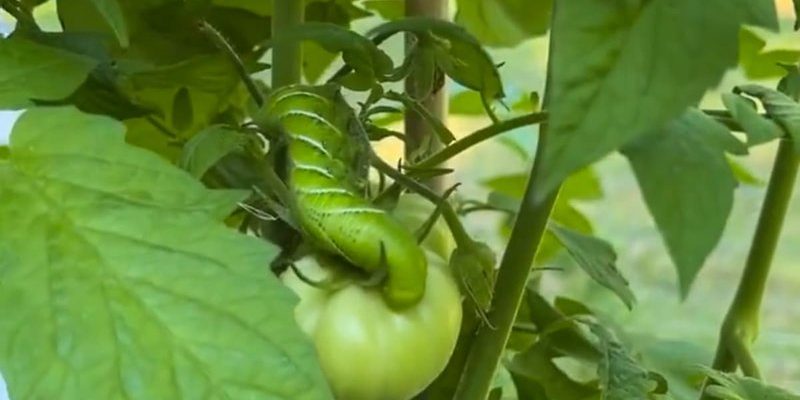
Hornworms, specifically the tomato hornworm, are notorious for their voracious appetite. Imagine a tiny T-Rex munching its way through your tomato plants, leaving behind a trail of devastation. So, what happens when you combine hydroponic tomato systems with hornworms? It’s a fascinating blend of innovation and challenge, and understanding how to manage these pests can be key to a successful harvest.
In this article, we will explore how hydroponic systems work, the challenges posed by hornworms, and effective strategies to protect your hydroponic tomatoes. Let’s dig in!
Understanding Hydroponic Systems
Hydroponic systems allow you to grow plants without soil, using nutrient-rich water instead. Think of it as giving your plants a drink of vitamins directly. This method benefits from faster growth and higher yields since plants can access essential nutrients more efficiently. There are different types of hydroponic systems, such as nutrient film technique (NFT), deep water culture (DWC), and aeroponics.
Each system has its own advantages and challenges. For instance, in DWC, plants are suspended in a nutrient solution, while NFT uses a thin film of water to nourish the roots. If you’re a beginner, starting with a simple DWC setup might be a good choice. You’ll find that the simplicity of the system can lead to remarkable results.
One of the coolest things about hydroponic systems is that they can be set up indoors or outdoors. So, if you don’t have a big yard, you can still enjoy homegrown tomatoes on your kitchen countertop! Just picture those fresh, vine-ripened tomatoes gracing your salads or sauces, all grown right at home.
Meet the Hornworm: A Gardener’s Nightmare
The **tomato hornworm** is the larval stage of a moth called the five-spotted hawk moth. They might look like a cute little caterpillar at first, but don’t be fooled. These pests can grow up to 4 inches long and have a ravenous appetite. If you’ve ever seen one, you probably can’t forget how they munch through leaves like a kid in a candy store.
Hornworms are primarily green, allowing them to blend in with tomato plants, making them hard to spot. You might be wondering, “How do I even know if I have hornworms?” The easiest way to tell is by checking for the following signs:
- **Holes in your leaves**: If your leaves look like they’ve been through a shredder, you might have hornworms.
- **Feces**: Small dark droppings near the base of plants are a telltale sign of hornworms lurking nearby.
- **Chomping sounds**: Yes, you read that right! If you listen closely at night, you might hear them munching away.
Taking early action against these pests can save your harvest. But you might be asking, “What can I do about them?”
Strategies to Manage Hornworms in Hydroponic Systems
Managing hornworms in hydroponic systems can be tricky, given that these pests thrive on the same delicious tomato plants you’re trying to grow. Here are some effective strategies to keep these pesky critters at bay:
1. Manual Removal
Sometimes, the simplest solutions are the best. Check your plants regularly and remove any hornworms you find. They’re often well-camouflaged, so look closely at the undersides of leaves and the stems. You can simply pick them off and relocate them away from your plants. Be sure to wear gloves!
2. Natural Predators
You might want to introduce natural predators into your hydroponic environment. Ladybugs and parasitic wasps eat hornworms and their eggs, keeping their population in check. Just imagine having mini bodyguards for your tomato plants!
3. Organic Pesticides
If you find that manual removal isn’t keeping up with hornworm numbers, you can use organic pesticides. Products containing *Bacillus thuringiensis* (Bt) are effective against hornworms. This bacteria is harmless to humans and pets but will knock out these hungry caterpillars. Follow the instructions carefully for the best results.
Why Hydroponics and Hornworms Matter to You
You might be wondering why you should care about this relationship between hornworms and hydroponics. The answer is simple. If you want to enjoy juicy, homegrown tomatoes, you need to understand the potential challenges. Hydroponic systems can yield faster and healthier plants, but they also require vigilance against pests.
When you’re aware of the risks and have the proper strategies in place, you’ll be better equipped to handle any threats to your harvest. It makes the difference between a bountiful crop and a sad, worm-eaten garden.
Moreover, the satisfaction of growing your own food, free from the constraints of traditional gardening, is incredibly rewarding. You get to enjoy your own delicious tomatoes with a side of adventure!
The Future of Hydroponic Gardening
As more people become aware of sustainable practices and efficient food production, hydroponics is gaining traction. It’s an exciting area with possibilities ranging from home gardening to large-scale agricultural applications. The technology is rapidly advancing, making it easier than ever for beginners to start their hydroponic journey.
Imagine a future where urban roofs are brimming with hydroponic gardens, producing fresh food right in the heart of the city! However, it’s essential to stay informed about potential pests, including hornworms, to keep this dream alive.
Growing hydroponic tomatoes can be a rewarding experience filled with juicy rewards, but it also requires attention to detail, especially when it comes to pests like hornworms. By understanding how hydroponic systems work and being proactive in your pest management, you can ensure your plants thrive.
So, as you plan your hydroponic garden, keep hornworm management in your toolkit. With a little knowledge and care, you’ll enjoy a bountiful harvest of delicious tomatoes, straight from your own home. Happy gardening!

